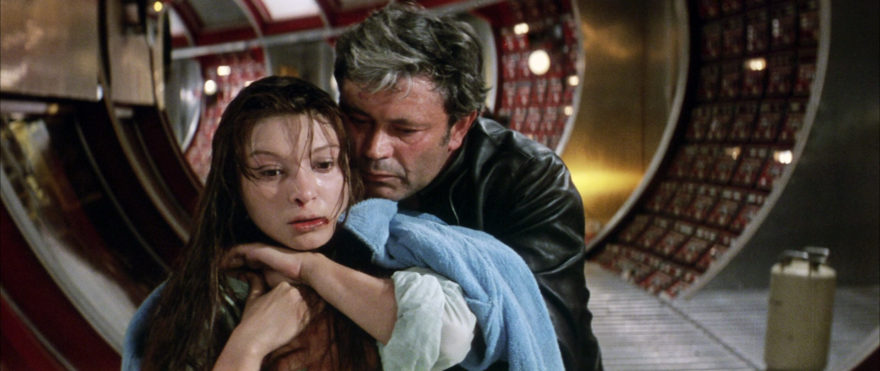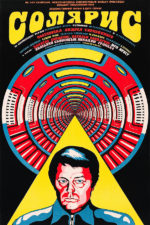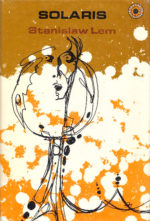Solaris is a contemplative film that explores the unknown: in deep space and in the human soul. Researchers orbiting a distant planet try to communicate with a mysterious alien presence, and the entity responds by sending living replicas of people drawn from the scientists’ own memories—but each of these eerie ‘visitors’ seem to represent the scientists’ deepest emotional scars.
Deep into the film, one researcher wakes to find a ‘visitor’ sitting in his quarters—a beautiful young woman from his past. She searches for her shoes, confused, remembering only vaguely who she is—but she knows who he is, and she appears to love and trust him deeply. In fact, she clings to his side. But he is repulsed by her presence, as she is a resurrection of his greatest love, and his deepest guilt.
Russian director Andrei Tarkovsky was known for his slowly-paced, gorgeously photographed films. They are not action-packed adventures, but intense studies of people struggling with their souls. His films are slow—very slow—and mesmerizing. Before you watch, turn off your phone and don’t give yourself any excuses to be distracted. It may well test your attention span, but for many it is worth it.
Curiously, while in pre-production, Tarkovsky saw Kubrick’s 2001: A Space Odyssey and did not care for it. While visually stunning, he felt it was too sterile and cold. And, in fact, he worked to make his impressive Solaris space station appear broken down and worn out—much like its characters. The set itself was constructed of the same aluminum that was used in the Soviet space program and the film’s aerospace consultant stated, “the entire place looks like we could launch it into space right now.” Even Japanese director Akira Kurasawa, who happened to visit the set, was so impressed that he asked to be left alone in it while he considered shooting his next film there.
In a peculiar aspect of Soviet cinema, Tarkovsky’s award-winning films brought honor to the USSR, but the censors did not like his ‘non-conformist’ ideas and so Solaris was only released in five theaters in his own country. But even still, it sold over 10 million tickets on its initial run and it continued to play in Russia for 15 straight years, attaining cult status both inside and outside the Soviet Union.
Solaris premiered at the Cannes Film Festival to critical acclaim, winning the Grand Prix Spécial du Jury, and—although it was kept secret by Soviet officials—Tarkovsky also received an award from the Catholic Church for the divine nature of his film.
Tarkovsky was branded a traitor when, near the end of his life, he defected from the Soviet Union. Just prior to his death, however, as the Berlin wall fell and Russia opened up to the world, Tarkovsky was again recognized as one of the preeminent Russian filmmakers. He was later memorialized with a bronze statue at the Russian State University of Cinematography and his likeness even appeared on a Russian stamp.
Enjoying the site? If so consider supporting it with alien-infused caffeine…









Unbelievably underappreciated film!